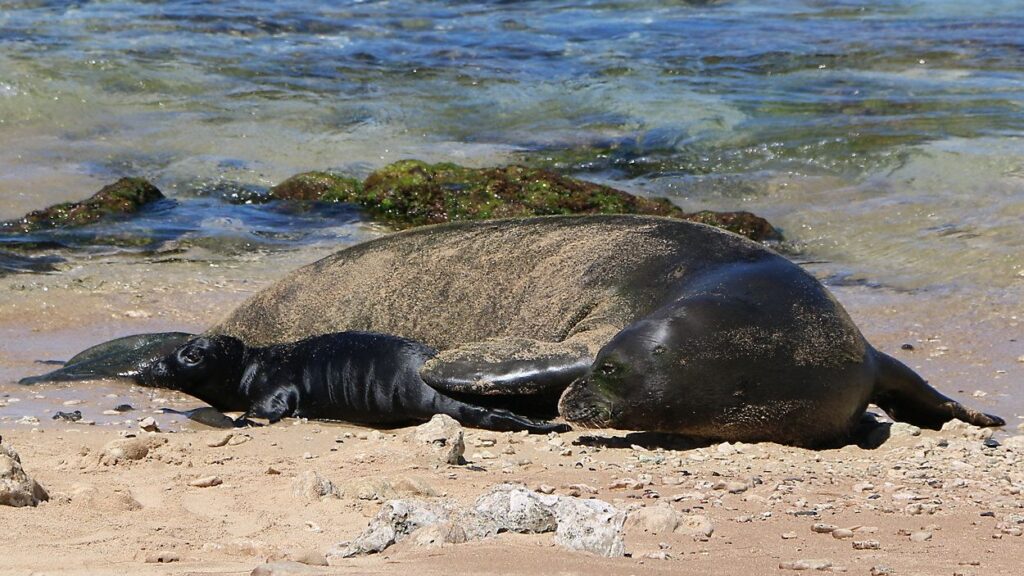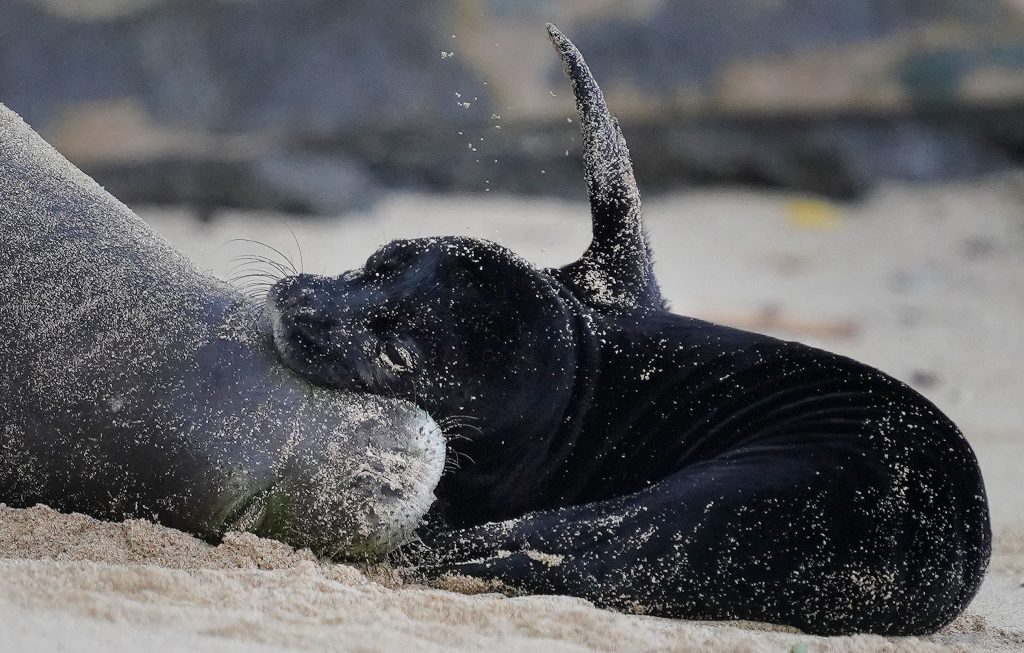For many years, state officers in Hawaii enhanced their patrols and resources through a special partnership that assisted their federal counterparts, who are stretched thin across the islands, in enforcing conservation laws for native species.

This “joint enforcement agreement” (JEA) provided substantial federal funding to Hawaii’s Division of Conservation and Resources Enforcement (DOCARE) annually, aiding the National Oceanic and Atmospheric Association (NOAA) in safeguarding monk seals, spinner dolphins, sea turtles, and other marine animals.
However, DOCARE withdrew from the JEA last year due to the increasingly burdensome monthly reporting requirements for these federal funds.
“In September, we decided to take a break from the program to recalibrate our processes and ensure we can meet the reporting requirements under the agreements,” DOCARE Enforcement Chief Jason Redulla explained last week.
DOCARE now aims to rejoin the JEA, with plans to apply by a deadline later this month and resume the partnership by August or September if accepted.
Both Redulla and NOAA’s Office of Law Enforcement agents praised the JEA as a crucial tool for enhancing the enforcement of the Marine Mammal Protection Act, the Magnuson-Stevens Fishery Conservation and Management Act, the Lacey Act, and other federal laws protecting marine species.
“We become a force multiplier. We have the ability to be deputized as federal officers, which in turn helps the federal government,” Redulla noted last week.
Despite the year-long halt, both agencies emphasized that DOCARE’s enforcement levels remained unaffected, even without the federal funds that covered overtime, fuel, equipment, and other costs. Frank Giaretto, deputy special agent in charge for NOAA OLE’s Pacific Islands Division, stated, “Our relationship with DOCARE has never been better, regardless of whether they have a JEA in place.”
The lack of a JEA did not hinder the response to monk seal incidents across the islands, including a tragic event in May on Oahu’s North Shore where an unleashed dog attacked and killed a day-old monk seal pup named PO7. Two local residents, including a state Division of State Parks employee, were charged and fined $20,000 for the incident. Both State Parks and DOCARE are part of the Department of Land and Natural Resources.
Former DLNR Director William Aila expressed surprise at the state’s withdrawal from the JEA, citing its advantages during his tenure from 2010 to 2014. He highlighted the benefits of federal training for state officers, which improved prosecution against marine species violations, and the acquisition of boats and other equipment with federal funds.
Redulla and NOAA OLE agents emphasized that the primary benefit of the JEA was funding. Martina Sagapolu, assistant director for NOAA OLE’s Pacific Islands Division, acknowledged the paperwork burden that led to DOCARE’s withdrawal last year. “It’s a lot of paperwork — welcome to the federal government,” she said, noting that NOAA is working to simplify reporting requirements.
Despite the challenges, the JEA provided over $275,000 to DOCARE in its last year, supporting NOAA’s limited law enforcement personnel in patrolling and investigating across the islands. However, federal funding for JEA agreements has declined in recent years, with DOCARE’s share nearly halving over a decade. In 2014, the division received over $574,000.
Sagapolu pointed out that her enforcement division, with fewer than 12 people, covers the entire U.S. Pacific region, including Hawaii, Guam, and other U.S. territories — the smallest division by personnel but the largest by area, covering 1.7 million square miles.
Redulla mentioned that DOCARE has revamped its internal procedures and can now meet federal reporting requirements. “I don’t think we lost out on much,” he said. “It was more important to ensure that if we accept federal funds, we comply with federal requirements, demonstrating responsible use of the funding.”
